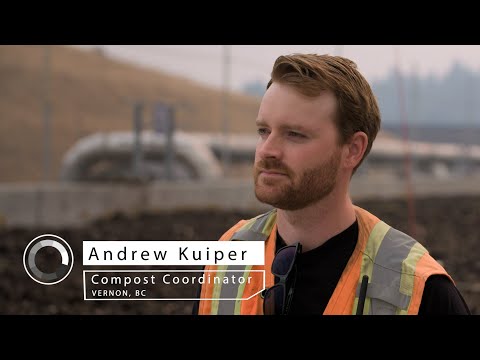Career Overview
This group includes managers who plan, organize, direct, control and evaluate the operations of utility companies, utility services or heating oil distribution companies (i.e. managers in water supply, electrical power distribution, natural gas supply, petroleum product distribution, water pollution control and waste systems).
Utilities managers:
- Provide services such as water, electricity, natural gas or heating oil
- Provide services to residential, commercial and industrial consumers
- Work for public and private sector utilities and heating oil distribution companies
Job Titles
Duties
Water supply managers:
- Manage water filtration, purification processes and pumping operations
- Schedule and oversee the maintenance of plant equipment
- Prepare reports on water supply and water quality
Electrical power distribution managers:
- Manage the operations of electrical power distribution systems including generating stations, transmission stations and distribution networks
- Plan and direct the distribution activities of a municipal electrical power establishment
Natural gas supply managers:
- Manage the delivery of gas to consumers
- Monitor supply inventories
- Control the recording of deposits and withdrawals
Petroleum product distribution managers:
- Plan and direct the distribution of heating oil products to retail distributors and regional storage sites
Water pollution control managers:
- Manage the operations of a sewage treatment plant
- Schedule and direct maintenance of plant equipment
- Prepare reports on water quality
Waste systems managers:
- Manage solid or liquid waste collection and disposal systems
- Train drivers in how to handle waste
- Ensure safe operation of disposal facilities
Earnings
Earnings is income that workers receive in exchange for their labour. Depending on the type of employment, earnings can be in the form of wages (hourly), salaries (fixed monthly or annual) or self-employed earnings.
Work Environment
# Workers Employed
1,470% Employed Full Time
88%Work in this occupation is typically performed in a structured environment, such as an office.
Career Pathways
Promotion to senior management positions in the utility industry is possible with experience.
Occupational Interests
It’s important to understand what kinds of occupations align with your interests.
For more about occupational interests visit Skills for the Future Workforce > Characteristics.
Here are the top occupational interest(s) for this career profile:
Education, Training and Skills
- A bachelor's degree or college diploma in an appropriate discipline is required e.g., electrical engineering is required for managers of transmission lines, and water resource technology for water supply managers
- Several years of experience as a supervisor in a related utilities operations department are required
- Professional engineer certification is usually required for managers of utility operations involved in the transmission and distribution of electrical power, and natural gas and heating oil
Education programs in B.C.

Top Skills
Every job calls for a certain set of skills. Knowing those skills is the first step in finding a good career fit.
Here, you will find the 10 most relevant workplace skills. Some are more important to achieving success in a certain career than others. These skills may come naturally to you or you may need to gain them through education, training and experience.
See the list of work-related skills below, ranked in order of importance for this career. Check out the list and see if this career matches your skills—take that first step!
Talking to others to share information effectively.
Understanding written sentences and paragraphs in work-related documents.
Keeping track of and assessing your performance, other individuals, or organizations to make improvements or take corrective action.
Using logic and reasoning to identify the strengths and weaknesses of alternative solutions, conclusions or approaches to problems.
Giving full attention to what other people are saying, taking time to understand the points being made, asking questions as appropriate, and not interrupting at inappropriate times.
Considering the relative costs and benefits of potential actions to choose the most appropriate one.
Adjusting actions in relation to others' actions.
Motivating, developing and directing people as they work, and identifying the best people for the job.
Managing one’s own time and the time of others.
Being able to solve novel, ill-defined problems in complex, real-world settings.
Labour Market Statistics
Discover data, facts and information that have been gathered and analyzed. Learn about the characteristics of the economy and labour market in B.C.
Employment
Find out about employment types and trends by region and industry.
Employment
1,470Employment by Region







| Region | Employment | % Employment of this Occupation |
|---|---|---|
| Cariboo | 70 | 4.8% |
| Kootenay | 45 | 3.1% |
| Mainland/Southwest | 820 | 56.0% |
| North Coast and Nechako | 25 | 1.7% |
| Northeast | 60 | 4.1% |
| Thompson-Okanagan | 215 | 14.7% |
| Vancouver Island/Coast | 230 | 15.7% |
Labour Market Outlook
The B.C. Labour Market Outlook is a 10-year forecast of the expected supply and demand for labour in the province. It’s usually updated every year. The purpose is to provide British Columbians with the knowledge to make informed decisions on careers, skills training, education and hiring.
Forecasted Job Openings (2025-2035)
860Forecasted Job Openings
Forecasted Employment Growth Rate
Composition of Job Openings
Job Openings by Region (2025-2035)







| Region | Job Openings | Avg. Annual Employment Growth |
|---|---|---|
| Cariboo | 30 | 0.3% |
| Kootenay | 20 | -0.4% |
| Mainland/Southwest | 490 | 1.0% |
| North Coast and Nechako | Not available | Not available |
| Northeast | 40 | 0.7% |
| Thompson-Okanagan | 130 | -0.2% |
| Vancouver Island/Coast | 140 | 1.2% |
Industry Highlights
Learn about the opportunities in B.C.'s major industries, including employment trends, earning potential, locations of work and more.
Forecasted Job Openings by Industry
| Industry | Job Openings (2025-2035) |
|---|---|
| Utilities | 450 |
| Business, Building and Other Support Services | 160 |
| Public Administration | 70 |
| Wholesale Trade | 60 |
| Construction | 30 |
Resources
Resource information is currently not available.








